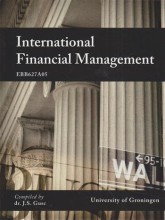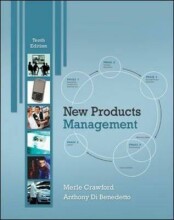The Market for Foreign Exchange, Int. Parity Relationship, Int. Capital Markets and the Cost of Capital
7 important questions on The Market for Foreign Exchange, Int. Parity Relationship, Int. Capital Markets and the Cost of Capital
What is the difference between a long and a short forward position?
What are non-deliverable forward contracts?
What is an exchange-traded fund?
- Higher grades + faster learning
- Never study anything twice
- 100% sure, 100% understanding
What do point C and D on the picture tell you?
According to scientific literature PPP has a lot of negative results regarding the explanation of exchange rates, what can be a valid reason?
What is the technical approach, one of the forecasting techniques?
Despite the potential benefits, not every company seeks overseas listings because of the costs, name four:
The question on the page originate from the summary of the following study material:
- A unique study and practice tool
- Never study anything twice again
- Get the grades you hope for
- 100% sure, 100% understanding































